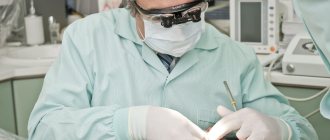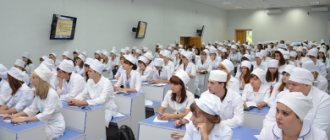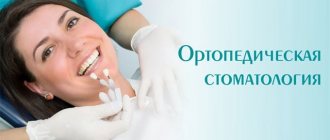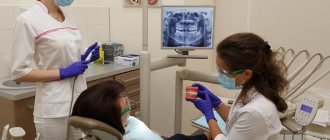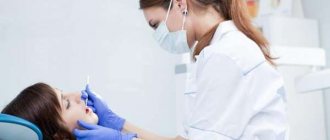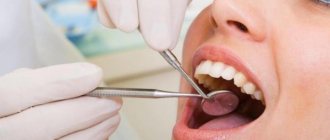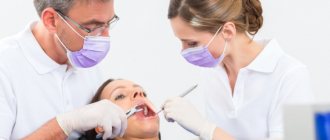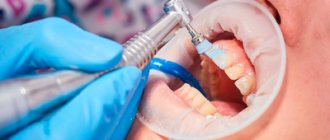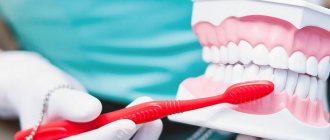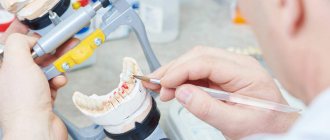The profession of an orthodontist is becoming increasingly popular, because the success of eliminating dental anomalies depends on it. Now no more than 6% of dentists do this, so there will always be a demand for good specialists. But in order to become a professional, you need to receive the appropriate education and constantly improve your skills.
Who is it?
This is a doctor who deals with the correction of congenital or acquired pathologies of the jaws. He places braces, makes impressions for dentures, and then installs them. His competence includes the treatment of the following anomalies:
- curvature of the entire geometry of the dentition or individual teeth;
- unaesthetic bite;
- disproportionate development of the upper and lower jaws;
- unerupted teeth;
- asymmetrical face shape;
- tooth gap;
- speech, chewing or breathing disorders resulting from jaw pathology;
- restoration of lost teeth;
- displacement of the dentition.
The specialist’s responsibilities also include preventing the occurrence of such anomalies and studying the reasons that cause them. The orthodontist works to improve the dentition in every possible way.
The profession requires combining the skills of a dental technician with the knowledge of a dentist. But he does not treat carious cavities or fill them. To correct teeth, an orthodontist mainly uses hardware and surgical methods.
Important! Dental anomalies can be corrected at any age. But only those who see a doctor on time with their problem can count on the most positive results. This applies to both children and adults.
In the video about who an orthodontist is, what he does and why it is needed:
MIIT Medical College
The college is a structural subdivision of the Moscow State Transport University, and trains paramedical personnel for medical institutions of the Russian Railways system. It is also a clinical base for students’ practical training. Graduates of the specialty “Orthopedic Dentistry” are guaranteed 100% employment in hospitals and clinics of the Moscow railway transport. You can only get a dental technician profession here for a fee; the cost of training is 90 thousand rubles per year.
Features of the profession
The main tasks of an orthodontist include:
- identifying the reasons that contributed to the formation and development of pathology;
- study of the degree of complexity of the patient’s problem;
- selection of an adequate and effective course of treatment, taking into account the individual characteristics of the client and diagnosis;
- carrying out preventive measures to prevent recurrence of abnormal changes;
- records management;
- performing dental procedures - tooth extraction or pain relief, if required by a specific situation;
- providing medical assistance if necessary.
The specialist is also obliged to familiarize patients with the rules of oral hygiene . The scope of his employment is significantly narrower than that of dental therapists. The result of the orthodontist’s work is considered to be a flawless and even smile.
Attention! Within the profession there is a division into pediatric and adult orthodontist. Treatment methods will be different for each age group.
The doctor’s choice of specific actions is directly related to the nature of the client’s pathology. At the first appointment, the specialist will not install braces or corrective plates ; this requires special preparation.
The first visit to the orthodontist involves a thorough visual examination, preliminary diagnosis and consultation on recommended methods of getting rid of pathology. After making a diagnosis, he prescribes treatment and carries out procedures to correct the dentition. Finally, the achieved results are recorded using special structures - a tray or thin wire.
Disciplines studied
In the process of receiving education, the student will study the following subjects:
- social hygiene and public health;
- organization of medical orthodontic care for the population;
- normal and pathological anatomy of the head;
- diagnostic methods in orthodontics;
- technologies for treating patients with diseases and deformities of the dentofacial area;
- orthodontic instruments and equipment;
- development and prevention of dental anomalies and deformations;
- anomalies and deformations of teeth and jaws;
- occlusion abnormalities;
- defects of the jaws, dentition and marginal periodontal disease;
- injuries of the maxillofacial area, pathologies in the development of the face and jaw.
Some specialties for elective study of ordinates can be chosen at will.
Pros and cons of the profession
Among its advantages are the following:
- decent wages;
- increased demand;
- the possibility of continuous professional development and remuneration;
- prestige;
- low competition.
The disadvantages of this specialty include:
- the need for long-term training - more than 5 years and its high cost;
- frequent stress, especially during dental treatment in children;
- increased responsibility for your work.
The complexity of the profession also lies in the fact that the doctor is obliged not only to study the clinical picture well, but also to select the optimal treatment methods that are guaranteed to help correct the identified defects in the patient.
Degree: Orthodontist
The most common entrance exams:
To enter, you must have a medical education in general medicine or pediatrics.
Orthodontics is one of the most promising branches of dentistry. Orthodontists help their patients solve bite problems. Professionals deal with the elimination of defects in the maxillofacial region as a whole, or in individual teeth. The work of an orthodontist is not easy not only physically, but also psychologically, since you need to be able to accurately predict the outcome of treatment, otherwise an error in correcting the bite may be noticed only after several months.
Professionals can choose an individual treatment method and the most suitable devices. As a rule, to correct bite deformities, braces are used, which are installed and removed by the doctor himself, who determines whether such technology is suitable for the patient.
Important personal qualities
The most important thing here is the psychological factor. Dental correction is a long process. It takes from 6 months to 2-3 years. And most often you have to deal with children. Therefore, you need to be able to establish trusting contact with them. You can’t do this without the ability to empathize and communicate.
Stress resistance and the ability to smooth out conflict situations are also valued. And in order for the treatment results to always be positive, you need to take your work responsibly. Hard work also requires goodwill, balance and tact.
And no less significant will be the desire for self-development. A specialist must regularly improve his competence and skill level , and understand new treatment methods.
Requirements for the specialty
To work as a dentist, you need to graduate from college. Dental college training is only sufficient for a medical assistant or nurse. However, there are no career prospects for these specialties.
In addition to specialized education, a dentist will also need accreditation and practical skills.
Basic requirements for the knowledge and skills of a dentist:
- know the structure of the dentofacial apparatus;
- master modern methods of diagnosis and treatment;
- be able to use dental equipment;
- know everything about the medications used and filling material.
A future doctor would benefit from knowledge in the fields of pharmacology, chemistry and biology.
Where to study and how many years does it take to become such a doctor?
To master this profession, you must undergo full training at the Faculty of Dentistry at a university. Then get a narrow specialization in residency. In general, it takes up to 9 years. To successfully enter a medical university, you need to have high Unified State Exam scores in:
- biology;
- mathematics;
- chemistry;
- and physics.
Or you will have to take a test. Sometimes a foreign language exam is added to this list.
It is better to check the list of subjects directly with the educational institution to which you are applying for admission.
The best institutions that train dentists include:
- Moscow State University named after Lomonosov;
- Siberian State Medical University;
- RUDN;
- First Moscow State Medical University named after. Sechenov;
- KubMSU.
But studying at a university is not enough. A true specialist is constantly developing, mastering new techniques, attending thematic conferences and seminars. Only continuous work on himself makes him a professional in his field.
You will have to endure bad breath
This is true. You will need to smell each patient's breath. This is an integral part of the profession. During the examination process, you will have to dig deep into everyone's mouth with a flashlight. As a dentist you can't complain because people with poor oral hygiene have this problem. Even if you wear a mask, body odor and bad breath are two things you can't escape or protect yourself from. It should be your mission to educate people about oral health and ways to improve it.
Specialist salary
Obtaining an education requires large investments, but after successfully completing all its stages, a specialist will easily achieve a high level of income.
The salary depends on the place of work . In government institutions this is a flat rate, and in private clinics it is about 25-35% of the cost of services provided to the patient. In the second case, in order to earn decent money, you need to have more clients and an excellent reputation with positive reviews.
Specialization also affects your salary. A pediatric orthodontist is paid from 35 thousand rubles. and more, and for an adult – from 68 thousand rubles.
Reference . The highest demand for orthodontic services is in the Moscow Region, Krasnodar Territory and St. Petersburg. Beginning specialists are paid from 24 thousand rubles, and experienced specialists – from 50 thousand rubles. At the same time, the average salary in the Russian Federation is 90-100 thousand rubles, and if we are talking about a private clinic, the amount increases to 300-400 rubles.
Benefits of postgraduate study
After residency is completed, you can enroll in graduate school and continue to improve your level of knowledge. The student will be able to gain important managerial and pedagogical competencies, which will allow him to significantly expand the expected list of positions held.
Also, upon completion of graduate school, a dissertation is written and defended, which allows one to obtain the degree of Candidate of Dental Sciences. This will have a positive impact on the salary level of the future specialist, regardless of whether he works in a public or private medical institution.
Career
Orthodontist is a profession in demand . Vacancies in this specialty are open in the following places:
- state clinics;
- medical centers;
- private aesthetic medicine clinics.
An experienced doctor can open his own office to provide dental services. And if you have no desire to contact patients, there is always the opportunity to get a job at an enterprise that sells or produces medications or orthopedic structures.
The level of skill and quality of specialist services provided are periodically assessed by qualification categories. They are awarded after defending a research paper. The commission evaluates not only the doctor’s skills, but also the relevance of his knowledge and skills.
There are several types of categories assigned to an orthodontist:
- the second – if you have at least 3 years of experience;
- first – given with work experience of over 7 years;
- Higher - requires at least 10 years of practice.
A doctor has the right not to undergo certification, but this will interfere with career and professional growth.
Having a qualification category provides the following advantages:
- the opportunity to occupy high positions in medical organizations;
- the right to an increase to the basic salary;
- increasing the level of trust on the part of patients;
- status in the professional environment.
You can achieve even greater acceptance by speaking at medical conferences and publishing expert articles.
And if you want to build a scientific career, you will first have to complete graduate school, and then write and defend a dissertation. Then the title of Candidate of Medical Sciences will be awarded.
To become an orthodontist, you need not only to have certain personal qualities and undergo expensive training at a university, but also to constantly develop professionally. The reward for this will be decent wages and gratitude from clients.
How to proceed
When I entered St. Petersburg State Medical University, there was no Unified State Exam, there were regular entrance exams. My friend and I went to tutors, which gave some minimal guarantees, but I didn’t need them. I won’t deny that there has always been cronyism in medical school. Few people at that time acted on their own, although there were some. Those who came from the region were greatly helped by the targeted distribution, and excellent students had the opportunity to take only one exam. But no matter what the cronyism is, you have to study at medical institutes, otherwise you’ll drop out, sooner or later.
